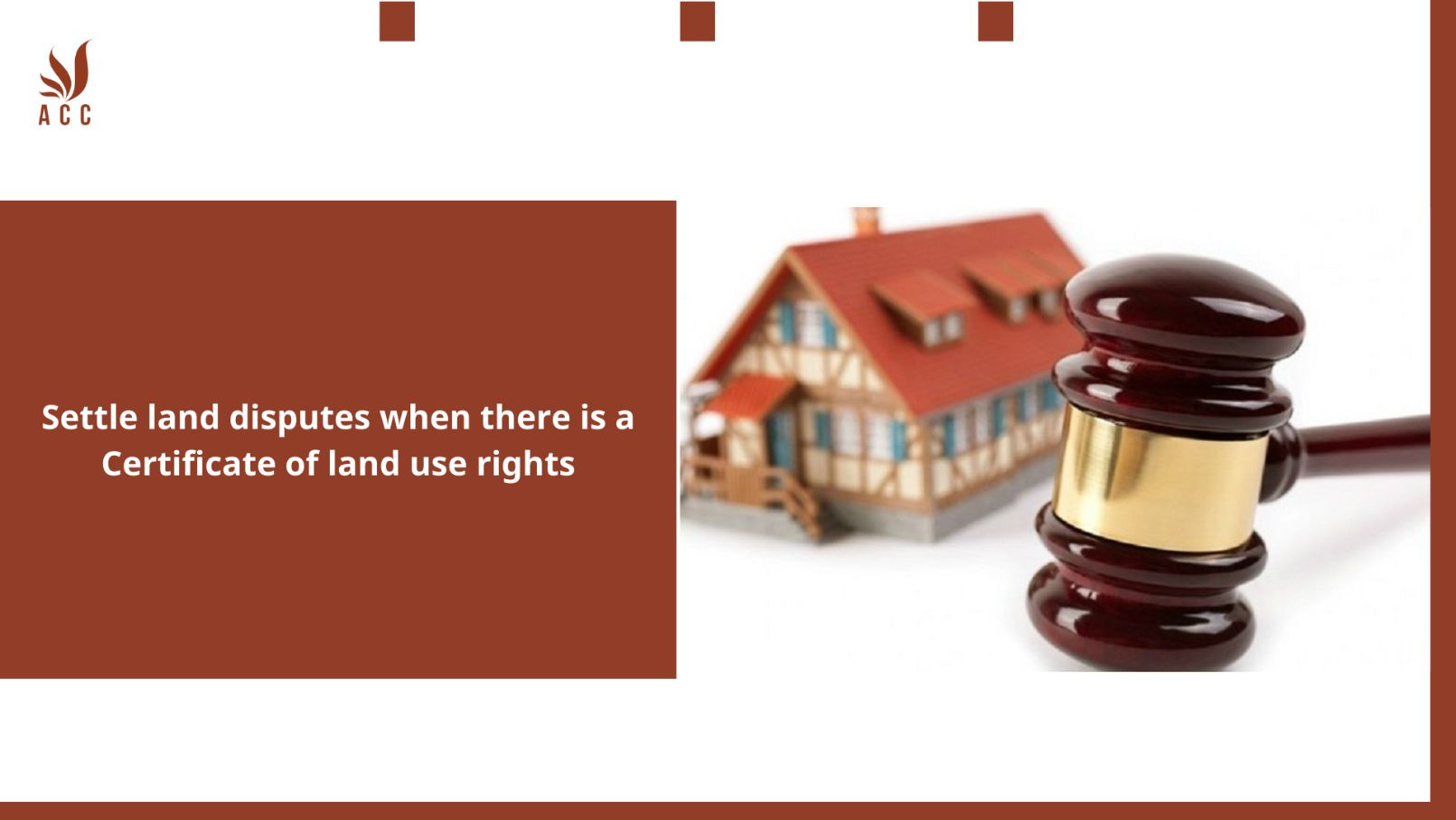Settling land disputes when there is a Certificate of Land Use Rights (land title) involved generally follows a legal process that aims to uphold the rights and interests of both parties. Here are the steps to consider when resolving land disputes with a valid Certificate of Land Use Rights:

1. Negotiation and Communication:
Start by attempting to negotiate and communicate with the other party involved in the dispute. Open and honest dialogue can lead to a mutually acceptable resolution.
2. Review the Certificate of Land Use Rights:
Carefully review the land title to ensure its accuracy and authenticity. Verify the property boundaries and ownership details.
3. Consult Legal Professionals:
Seek legal advice from a qualified attorney who specializes in land and property law. They can provide guidance on the legal aspects of the dispute.
4. Mediation:
If negotiation alone doesn't lead to a resolution, consider involving a professional mediator or a community-based mediation process. Mediation can be effective in reaching a compromise.
5. File a Lawsuit:
If mediation or negotiation fails to resolve the dispute, you may need to file a lawsuit in the appropriate court. Your attorney will help you prepare the necessary legal documents.
6. Gather Evidence:
Collect and present any evidence that supports your claim and refutes the opposing party's arguments. This may include documents, photographs, witness statements, and expert reports.
7. When using ACC Law Firm's land-related services, entrepreneurs will receive
When using ACC Law Firm's land-related services, entrepreneurs will receive expert advice and assistance in navigating various legal aspects of land ownership and transactions. This includes guidance in property acquisitions, leases, zoning regulations, land use planning, and any other land-related legal matters. ACC Law Firm's team of experienced attorneys will provide personalized support to entrepreneurs, ensuring compliance with applicable laws and regulations, protecting property rights, and optimizing the value of their land investments.
8. Q&A
Can land disputes occur even when there is a Certificate of Land Use Rights?
Yes, land disputes can still occur when there is a Certificate of Land Use Rights. Disputes may arise due to boundary conflicts, inheritance issues, or disagreements over land use that are not adequately addressed in the certificate. Resolving such disputes may require legal intervention or alternative dispute resolution methods.
What are the common reasons for land disputes despite having a Certificate of Land Use Rights?
Common reasons for land disputes despite having a Certificate of Land Use Rights may include:
a. Boundary Disagreements: Unclear or disputed land boundaries can lead to conflicts.
b. Inheritance Disputes: Issues related to inheritance and succession rights can cause disputes.
c. Misuse of Land: Disagreements over the permitted land use or unauthorized activities.
d. Encroachments: Neighbors encroaching on one's property can lead to disputes.
e. Multiple Claims: When multiple parties claim ownership or land use rights to the same parcel.
How can land disputes be resolved when there is a Certificate of Land Use Rights in place?
Land disputes with a Certificate of Land Use Rights can be resolved through various means, including:
a. Mediation: Engaging a neutral third party to help the parties reach an agreement.
b. Arbitration: Submitting the dispute to an arbitrator for a binding decision.
c. Legal Action: Initiating a lawsuit in court to resolve the dispute through judicial processes.
d. Boundary Surveys: Conducting a survey to determine and establish clear property boundaries.
e. Negotiation: Parties can negotiate and come to an agreement on land use and boundaries.
What steps can prevent land disputes when there is already a Certificate of Land Use Rights?
To prevent land disputes when a Certificate of Land Use Rights is in place, consider taking the following steps:
a. Regular Property Inspections: Conduct regular inspections to ensure the boundaries are respected.
b. Update Documentation: Update land use rights certificates as needed to reflect changes in land use or ownership.
c. Open Communication: Maintain open communication with neighbors to address potential issues.
d. Record Keeping: Keep records of property transactions, maintenance, and any changes in land use.
e. Legal Advice: Seek legal advice when dealing with complex property transactions or disputes.
Nội dung bài viết:






Bình luận